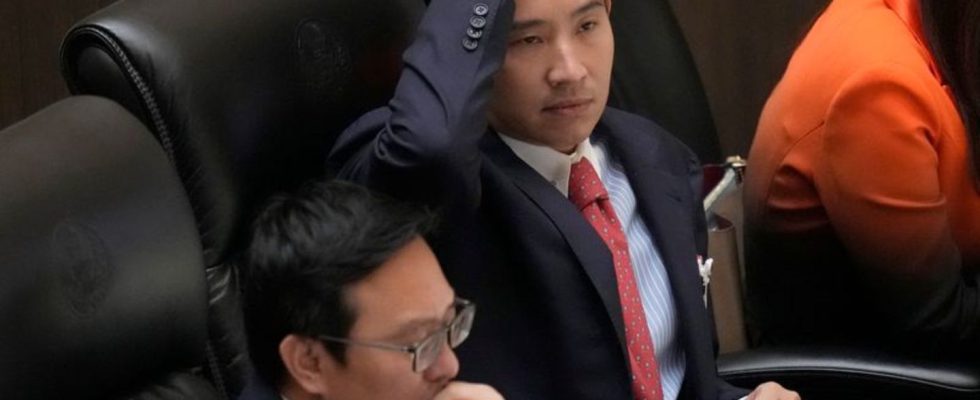South East Asia
Thailand: Election winner Pita still hopes for prime ministerial office
Pita Limjaroenrat reacts during the counting of votes in Parliament. photo
© Sakchai Lalit/AP/dpa
He is young and pro-democratic: Thailand’s election winner Pita Limjaroenrat is seen by many as a beacon of hope. But the Senate, which is dominated by the military, has so far denied him the post of head of government.
After the failed election of a head of government in Two months after the parliamentary elections in Thailand, the political future in the popular holiday destination is completely uncertain. Lead candidate Pita Limjaroenrat (42) from the pro-democracy Move Forward party failed to secure a majority in both chambers on Thursday. Voting is scheduled to take place next Wednesday.
Meanwhile, concerns about possible protests are growing. Angry reactions, especially from students, were not long in coming, as Pita’s party had clearly won the parliamentary elections in May. Still, he could miss the leap to power.
Move Forward formed a coalition of eight parties in recent weeks. Pita thus has a majority in the House of Representatives – but due to a special constitutional clause, that is not enough to become prime minister. The military, which has been in power until now, changed the constitution in its favor after a coup in 2014: In addition to the elected MPs, 250 senators appointed by the army also decide on the prime minister. Almost all of them voted against Pita on Thursday or abstained, which is taken as a “no”.
The student council of the renowned Thammasat University wrote in a statement addressed to Pita’s opponents in parliament: “Your behavior is disgusting and disgraceful (…). You ignore your role as representatives of the Thai people who are obliged to carry out tasks for the benefit of the nation and the welfare of the people.”
Fear of mass protests
Hundreds of Pita supporters followed the vote live in front of Parliament and loudly vented their anger at the outcome. There is growing concern that anger could erupt in mass protests. According to media reports, tour operators in particular fear that political unrest could damage tourism, which has just picked up again after the corona pandemic.
Meanwhile, Pita himself was confident that he would still be able to get a majority in the vote next week. “I accept the result, but I will not give up,” he was quoted as saying by the Bangkok Post newspaper on Friday. “I will find strategies to gather enough support in the next round of elections.”
The sticking point is the Move Forward Party’s plan to change the controversial lèse majesté law: Thailand punishes lese-majesté more severely than almost any other country. Article 112 provides for long prison sentences. There have been protests against this in the population for a long time. However, many conservative politicians want to stick to the law in its current form – and therefore refuse to vote for Pita. “If we allow people to insult the monarchy, our country will burn,” said Chada Thaiset of the Bhumjaithai party, which came third in May’s election.
Political observers in Bangkok believe that Harvard graduate Pita would win significantly more votes if he backed down from his tough line on the proposed reform. However, he made it clear: “I will continue to push to change the article, just as I promised.”

